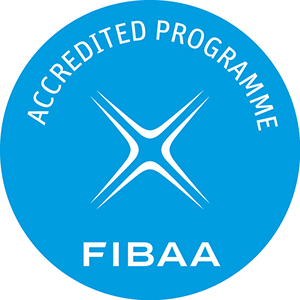
The PhD programme in Economics is aimed to develop rigorous theoretical knowledge and practical research skills to shape future professional researchers with a focus on empirical research in Economics for both academic and research career.
Graduates of the programme will be able to work in academia, international and local research institutions, government bodies.
Language of instruction: English
Faculty: PhD from leading international universities, experts from international and national research institutions
Learning objectives of the programme:
- Demonstrate the ability to apply a wide range of research and project management skills to conduct independent research in Economics and related fields
- Be able to generate new scientific knowledge and contribute to the relevant field
- Be able to conceptualise and critically evaluate the main theories in Economics, their evolution and paradigm shifts in economic theory and policy
- Be committed to high standards of research ethics and academic integrity
- Be able to apply core principles of science and various epistemological approaches, analyse concepts in terms of philosophical and theoretical underpinnings
- Demonstrate a systematic understanding of the analytical apparatus used in economic analysis and be able to employ it at an advanced level
- Be able to evaluate and analyse the key concepts of Economics and their Micro- and Macro applications
- Be familiar with various qualitative research methods and be able to apply those of them relevant to Economics
- Be able to apply advanced econometric methods of analysis and demonstrate proficiency in processing and modelling data, performing estimations and interpreting results at a professional level – Understand the process of writing papers and publishing in academia
- Demonstrate proficient command of English, both writing and speaking, and presentational skills.
| Code | Courses | ECTS | Required/Elective |
| PHL7201 | An Introduction to the Philosophy of Social Sciences | 5 | R |
| ECN7201 | Academic Writing | 5 | R |
| ECN7202 | Research Methods: Applied Econometrics | 5 | R |
| ECN7304 | Qualitative Methods in Research | 5 | R |
| ECN7305 | Quantitative Methods in Research | 5 | E |
| ECN7208 | Optimization Theory in Economic Analysis | 5 | E |
| ECN7313 | Labour Economics | 5 | E |

Kemelbayeva Saule
• Newcastle University, UK, PhD in Economics, Bolashak International
• Research interests: Applied Microeconometrics, Causal Inference, Economics of Education, Labour Economics.

Qoraboyev Iqbolzhon
• University of Toulouse, France, PhD in Public International Law
• Research interests: comparative regionalism, international law, and international organizations and with a particular focus on Central Asia, post-Soviet space, and Turkey.

Kaskirbayeva Daliya
Education: Leeds University (UK), PhD in Economics
Courses: Applied Econometrics, Advanced Topics in Economics

Mynbayeva Elmira
Education: The University of Aberdeen (UK), PhD in Finance
Courses: Financial Risk Management, Econometrics, Financial Econometrics I, II

Rakhimov Arman
Education: The University of Warwick (UK), PhD in Psychology
Courses: Research Methods

Taimagambet Daulet
• Crawford School of Public Policy, Australian National University, Australia, PhD (2014 – Present)
• Research Interests: International Economics, Econometrics, Research Methods

Bakhytzhan Kurmanov
PhD, Assistant Professor
Education: Nazarbayev University, Doctor of Philosophy in Public Policy, 2021. Master of Public Policy, Australian National University, 2013, BA, York University
Courses: Research Methods
Email:b_kurmanov@kazguu.kz

Azat Aituar
Assistant Professor, PhD
Education: University of Reading Business and Economics, PhD
Courses: Microeconomics, International Economics
Email:A.Aituar@kazguu.kz

Rustam Bekishev
Senior Lecturer
Education: B.S. in Mathematics, Nazarbayev University,Master of Science in Statistical Analysis, KAUST, KSA
Courses: Econometrics, Optimization Theory in Economic Analysis
Email:R_Bekishev@kazguu.kz
 MAQSUT NARIKBAYEV UNIVERSITY
MAQSUT NARIKBAYEV UNIVERSITY
